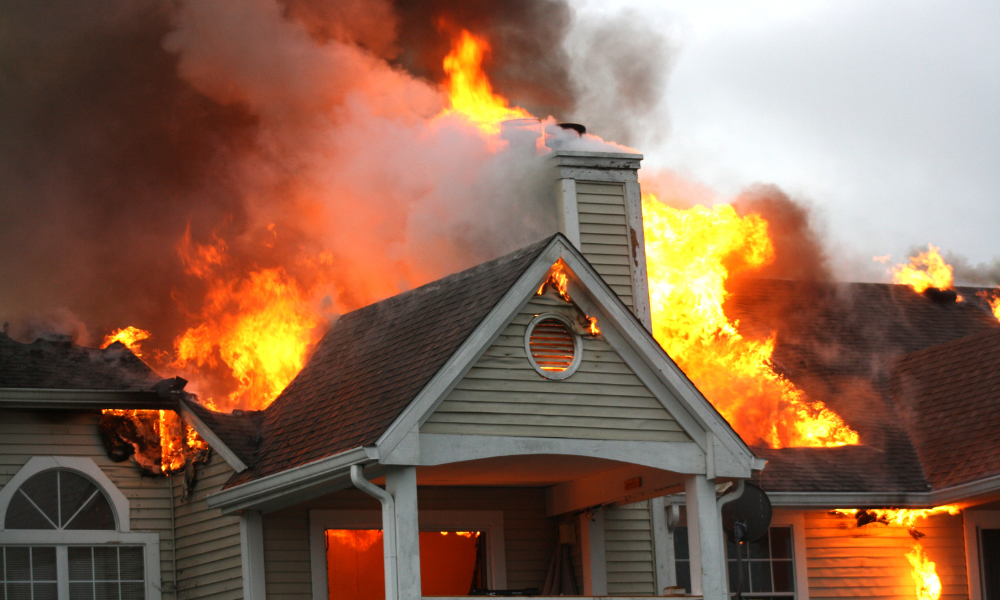
Insurer denies coverage for loss, alleges policy excludes property used to grow-up

The British Columbia Court of Appeal has allowed an appeal of a man who lost his house in a fire and whose claim for insurance proceeds the insurer denied based on the insurance policy’s exclusion of marijuana-related properties from coverage.
The appellant in Busato v. Gore Mutual Insurance Company, 2025 BCCA 79, had five surgeries from 2006–13 that led to chronic and debilitating pain. Health Canada issued him a valid license in March 2014, which allowed him to cultivate and possess up to 73 marijuana plants and use medicinal marijuana.
Gore Mutual Insurance Company was the insurer in this case. The appellant bought a homeowners’ insurance policy covering risks such as fire from the insurer in June 2014 and renewed it every year.
In April 2017, an accidental fire in the appellant’s kitchen destroyed his home and caused a total loss. He brought a claim seeking indemnity from the insurer under the policy. The insurer investigated the incident and learned he was growing 25 marijuana plants under his license.
In May 2017, the insurer denied coverage for the loss based on the policy exclusion relating to marijuana cultivation on the property. This denial prompted the appellant to bring the matter to the Supreme Court of British Columbia.
In November 2021, the judge dismissed the appellant’s action against the insurer. She accepted this was a harsh result but refused to grant him relief from forfeiture under s. 32 of BC’s Insurance Act, 2012. She found the policy exclusion unambiguous.
The judge of the BC Supreme Court concluded that it did not matter that the appellant grew the 25 plants under the license or that the cultivation had nothing to do with the cause of the fire. In reaching this conclusion, she relied on the Ontario case of Pietrangelo et al v. Gore Mutual Life Ins. Co. et al, 2010 ONSC 568.
Pietrangelo revolved around the same insurer, a similar insurance policy, and the same exclusion. But the facts there were very different. In that case, a tenant was producing cannabis resin despite lacking a license for marijuana production. This production eventually caused an explosion, which led to injuries to himself and his friend and the total loss of a house. The tenant faced criminal charges.
The Court of Appeal for British Columbia allowed the appeal. The appeal court found this case materially different from the Pietrangelo ruling.
The appeal court explained that Pietrangelo focused on the product’s nature as defined in the exclusion clause, with the Ontario judge relying on the subcategory for products derived from or containing marijuana. On the other hand, the present case did not centre on the nature of the product, with the BC judge explicitly considering that subcategory inapplicable here.
The appeal court added that Pietrangelo involved criminal activity, with the tenant pleading guilty to the acts that led to the fire and testifying about his actions at trial. The Ontario judge decided that the exclusion’s language was intentionally broad to capture illegal substances and prohibited activities. In contrast, the present case involved the licensed cultivation of marijuana.
The BC Court of Appeal saw an error in the judge’s finding that the exclusion clause was unambiguous. The appeal court found ambiguity in the exclusion, which it said should be interpreted narrowly in the appellant’s favour.
Specifically, the appeal court considered the wording of “Schedule (Section 2) of the Controlled Drugs and Substances Act Narcotic Control Regulations” in the exclusion clause ambiguous.
The appeal court said that the exclusion combined the titles of the Controlled Drugs and Substances Act and the Narcotic Control Regulations as if they formed a single piece of legislation. The appeal court also found the exclusion ambiguous regarding which substances triggered the exclusion.
The appeal court concluded that, if subjected to the proper interpretation, applying the exclusion clause would not remove the appellant’s house from coverage.
The BC Court of Appeal ruled that the judge’s analysis considered the exclusion clause in general but failed to weigh whether applying the exclusion in the circumstances would create an unjust or unreasonable result. The appeal court said that the judge’s analysis engaged the reasoning warned against in the case of Marche v. Halifax Insurance Co., 2005 SCC 6.
The appeal court held that applying the exclusion here would lead to an unjust and unreasonable result, given the circumstances in this case. Thus, the appeal court decided that the result should not bind the appellant under s. 32 of the Insurance Act.
Specifically, the appeal court considered the following circumstances: